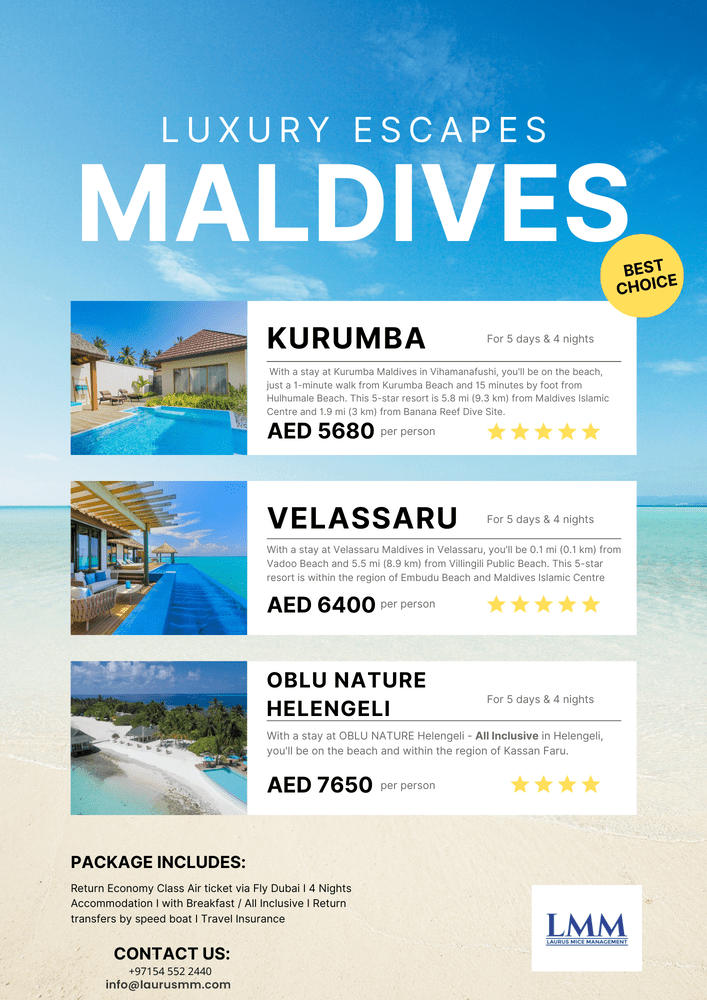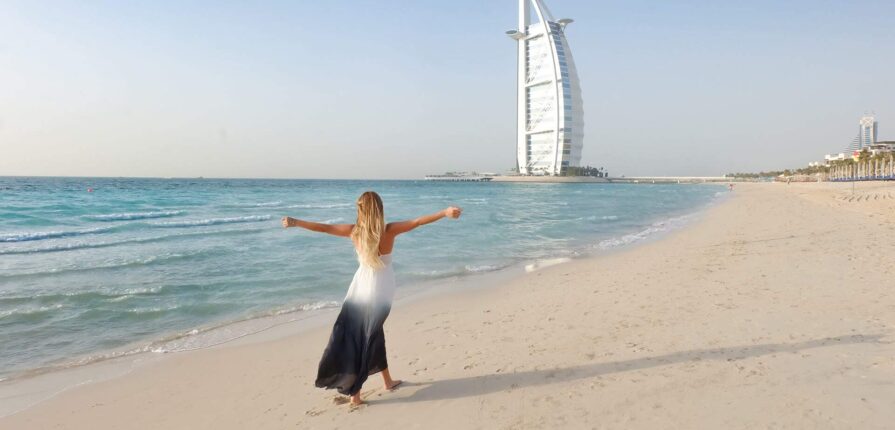Dubai is like the Disneyland of the Middle-East. And who doesn’t want to visit Disneyland, right?
But the thoughts of visiting Dubai are different across men and women.
Today, Dubai has become a hot-spot for travel junkies due to its deep dive into the ocean of ultra-modernity. But underneath all the glitz and glamour, when one looks closely, one finds a stronghold on traditions. Especially when it comes to women’s attire.
While we don’t deny that that’s true, female travelers have to understand that it isn’t as bad as one might think. Especially if you are a foreign visitor, as being one gets you a lot of perks, which you can use to your advantage.
What to wear in Dubai?
Visitors don’t have to dress in loose-fitting robes or cover their hair or faces like Emirati women, but we recommend you to cover your thighs and shoulders, so pack long skirts or loose trousers. Women need to wear a headscarf to visit a local mosque. Don’t worry! These are usually provided if you forgot to bring one. You don’t need to buy anything fancy. A colorful pashmina or scarf draped around the head and hair will do.
When you are in a bar or club though, you can wear whatever you want. However, be aware that many nightlife spots are located in hotels or shopping centers, and you may have to walk a public place before entering the bar, so bring a cover-up to avoid awkward situations when moving.
Try to restrict wearing a bikini on the beach or at the pool, not in any other situation, or else you’ll end up offending the locals.
What to wear during Ramadan in Dubai?
When outside, put on a below-the-knee skirt or loose-fitting trousers and a torso covering the non-low cut top.
You can still wear a bikini when sunbathing at the hotel pool or beach, but remember to cover yourself while walking through the hotel itself.
Will I be harassed?
There is no restriction to women sightseeing, riding taxis, dining out alone, hanging out late in the evening, contrary to popular myths. In fact, the World Economic Forum ranks UAE as the world’s second safest country. That’s not to say that you would be guaranteed a completely eve-teasing-free atmosphere, it is very similar to any other city in the world. If someone pays you unwanted attention, it’s not a problem to ignore or politely but firmly decline them.
Drinking alcohol in Dubai
This is a grey area. In Dubai, drinking alcohol without a license is technically illegal, and yet you see it everywhere. Being sold at the airport, bars and clubs and restaurants. Temporary visitors can’t obtain one. The Dubai Police doesn’t track drunken tourists unless they’re causing a disturbance.
Cohabitation and intimacy without marriage
Even though sex outside marriage is illegal and is punishable by jail and possibly deportation, you are unlikely to be taken action against. That is unless someone makes a complaint. If someone makes a formal complaint about you cohabiting with a member of the opposite sex – whether you bring them to a hotel room or to your home– then you could be in trouble.
You may find hotel authorities asking for your passport, but that is sincerely for security reasons, not anything else.
When it comes to contraception, you’ll find condoms for sale in supermarkets, pharmacies and petrol stations, but the morning-after pill is illegal. Doctors in the UAE are required by law to report pregnancies in unmarried women. If you think you might be pregnant, consider waiting until you’re back home to consult a professional.
Who should I contact in an emergency?
Whenever in trouble, contact the Dubai Police, who are extremely responsive and helpful in problems like theft & road accidents. (Dial 999 for emergencies and 911 for non-emergency situations). However, in cases involving sex or alcohol, it is better to contact your embassy.
If you have been raped, reconsider reporting it to the police. This is because while action against the perpetrators would be taken, you will also be charged with sex outside of marriage and face prosecution. Therefore, in such cases, it is better to get in touch with your embassy, which can help you without involving local authorities.













